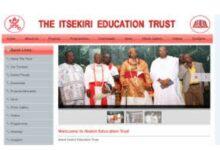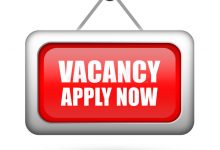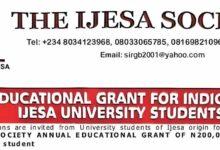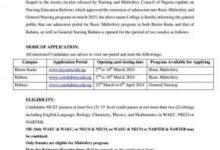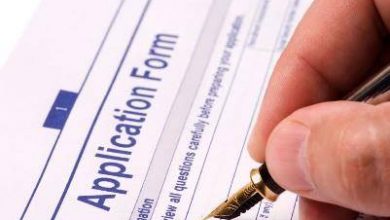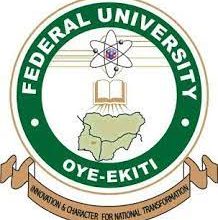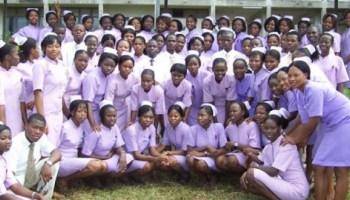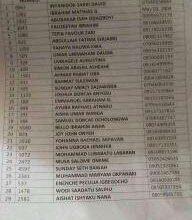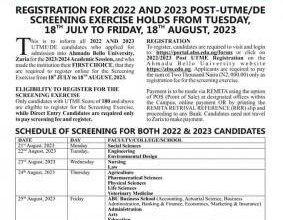Secondary School Curriculum In Nigeria
The secondary school curriculum in Nigeria has undergone a lot of changes recently. Before 2008, the secondary curriculum had a different combination of subjects and had both Junior and Senior secondary classes as part of it.
This was still under the 6-3-3-4 structure in which pupils spend 6 years in primary school, 3 years in Junior Secondary School, 3 years in senior secondary school and at least 4 years in the university.
👉 Relocate to Canada Today!
Live, Study and Work in Canada. No Payment is Required! Hurry Now click here to Apply >> Immigrate to CanadaUnder this system, secondary schools consisted of junior and senior secondary schools with the junior secondary offering subjects such as English Language, Mathematics, PHE, Introductory Technology, Integrated Science, Home Economics, Agricultural Science, CRS or IRK and Business Studies.
Read Also: Top 20 Most Expensive Secondary Schools In Nigeria
In JSS3, students write the Junior WAEC Examination which was conducted by the National Examination Council (NECO). The successful ones then proceed to the senior secondary section while the ones who are less academically sound can go ahead to learn a trade or something.
The senior secondary were mainly divided into three arms namely Science, Arts and Commercial classes. A student in the senior secondary section was expected to choose one of the arms from their first year in senior secondary section and this class determined what the student could or could not study at tertiary level because they had subject combinations tailored towards certain disciplines, although subjects such as Mathematics and English Language are compulsory for all the classes.
In some schools the students are expected to sit for a mock exam to prepare them for SSCE in SS3. They sit for the SSCE in SS3 for WAEC and NECO Certificates.
To qualify for admission into the university, the secondary school graduates are expected to pass at least three core subjects in their chosen classes and then Mathematics and English Language at credit level.
Read Also: 10 Problems of Science Education in Nigeria and Possible Solution
Introducing the BEC Curriculum
By 2008, the federal government through the National Education Research Development Council, NERDC, introduced the Universal Basic Education Curriculum.
👉 Relocate to Canada Today!
Live, Study and Work in Canada. No Payment is Required! Hurry Now click here to Apply >> Immigrate to CanadaThis curriculum separated the school curriculum into two namely the Basic Education Curriculum (BEC) and the Senior Secondary School Curriculum.
The BEC comprises Lower Basic (Primary 1-3), Middle Basic (4-6) and Upper Basic (JSS 1-3) while the senior secondary is made up of SS 1-3 left to stand alone.
The new BEC forms a nine-year curriculum with each category offering 10-16 subjects. Although this system is still the 6334 model in practice, it is difficult to categorise as secondary or primary because the first nine years of studies combines primary education with junior secondary education.
As a result, it caused a lot of confusion because more subjects were added which added to the workload of both teachers and students. This led to the revision of this curriculum in 2014.
2014 Curriculum
The 2014 curriculum was a revised version of the 2008 curriculum due to complaints by parents and staff alike on the overload of subjects.
This made NERDC to merge some subjects that had the same theme for instance Agriculture and Economics were merged to form Pre-vocational studies, Christian Religious Studies, Civic Education, Social Studies and Islamic Religious Studies were merged into Religion and National Values.
This resulted in every of the categories of the 9-year curriculum offering a maximum of 10 subjects. Under the 2014 revised curriculum, pupils in primary 1-3 are now to offer a minimum of seven subjects and a maximum of eight, primary 4-6 are to offer minimum of 8 and maximum of 9 while JSS 1-3 is to offer minimum of 9 and maximum of 10 subjects.
Read Also: How to Get Scholarship in Nigeria
It was also meant to upgrade Nigeria’s education standard to international level as no other country’s education curriculum had 20 subjects.
This curriculum was intended to prepare school children in vocational education and entrepreneurship to enable them survive on their own after leaving school. Below is the breakdown of subjects in the Junior Secondary Curriculum JSS 1-3, (Upper Level BEC).
Read Also: Education System in Nigeria; Primary, Secondary and Tertiary
Problems of the Revised Curriculum
This revised curriculum has raised a lot of questions and anxiety among school owners and parents for several reasons, one of which is that the religious studies have been merged with each other and with social studies and civic education, therefore diluting the religious teachings they would want their children to get.
For instance in the above table, Arabic Studies is stated as a subject on its own though it is optional, however, Christian Religious Studies is mixed up into Religious Studies and National Values.
Many private Christian school owners have expressed dissatisfaction over this new curriculum because the Christian Religious Studies has been diffused while Arabic is enforced and made to stand out.
And then road safety studies in “English Studies”? Some people have expressed dismay over this system which changes English Language to English Studies and Arabic into a Language in Nigeria.
I personally like the inculcation of Tourism as a theme in the Cultural and Creative Arts. This will help to spark interest in young people to develop the tourism potential in Nigeria.
Read Also: How to Start a School in Nigeria
Conclusion
I hope this information helps. The new curriculum has been received with mixed feelings so we will love to know what you think about it. Just leave a comment under in the comments section. Thanks for reading
